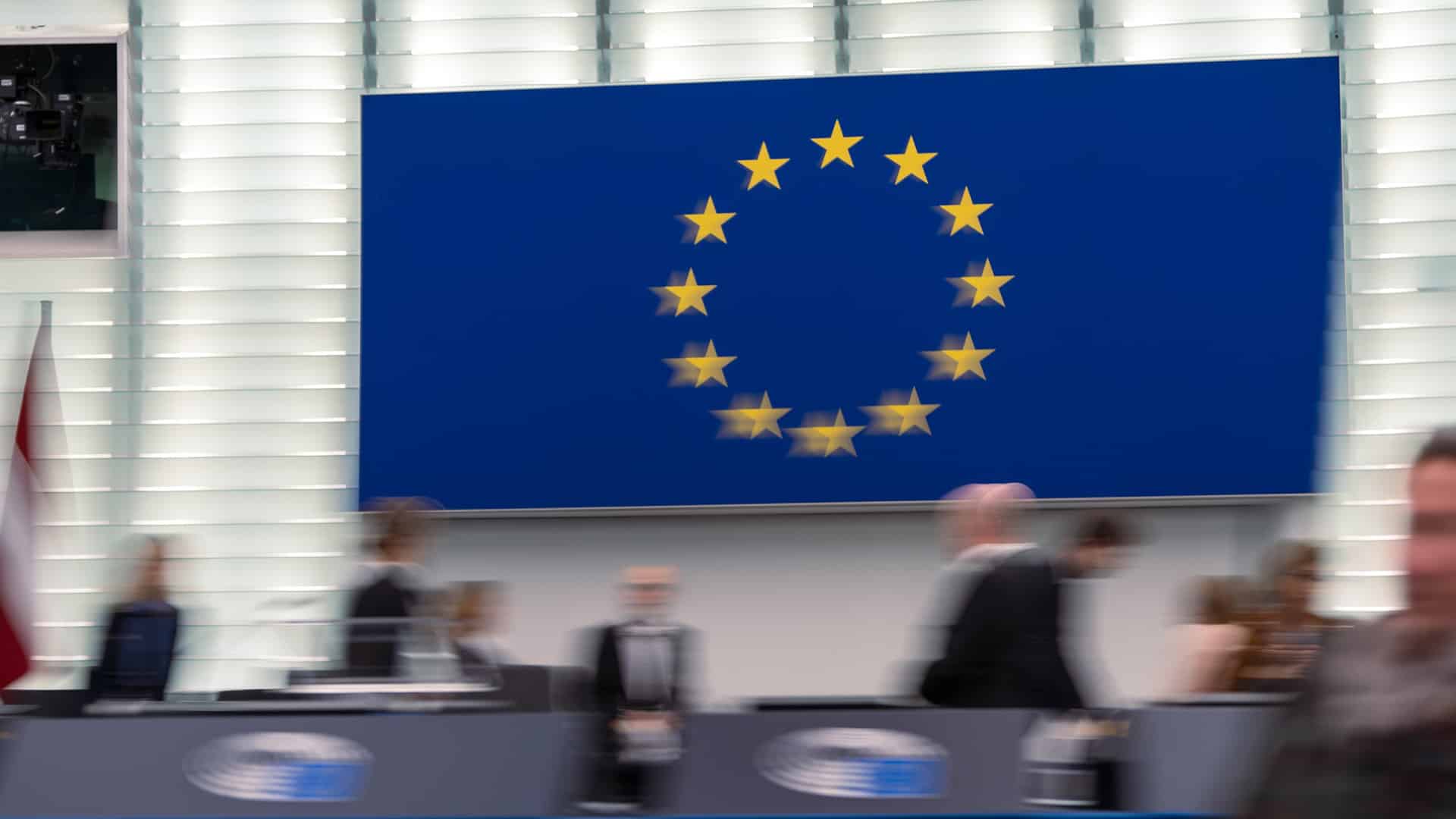Executive summary
This paper examines how the EU should strengthen is capacity for action and improve its governance considering the magnitude of the challenges it faces and, in particular, the medium-term prospect that the number of its members may rise to 35.
Since the Constitutional Treaty was signed 30 years ago, the EU has not instigated a single strategic initiative for improving the way it functions or broadening its panoply of powers. In the intervening time there have been reactive initiatives, including the Treaty of Lisbon, which sought to make amends for the failed ratification of the European Constitution, but these reforms have been conditioned by the need to deal with a string of crises: the Eurozone debt crisis, the pandemic and Russia’s aggression, amongst others.
Even if it is accepted that these situations have so far been handled reasonably well, the prospects of success amid new challenges seem severely restricted by the internal complexity and the depleted coffers of the current EU. Promulgating a reform of policies, financing and institutional functioning is therefore highly desirable if the future of the 27 current members is not to be compromised, and indispensable if a new enlargement is being sought.
The fact is that the global and domestic political scene has changed quickly and significantly. The EU needs to adapt itself both: externally, to a world of geopolitical rivalry and economic security that have replaced multilateralism and open trade; and internally, it needs to adapt to the growing political fragmentation and the surge in Euroscepticism in some member states that make it increasingly difficult to take joint decisions.
Europe’s vulnerabilities and priorities (security, loss of competitiveness, the climate emergency and demographics) are well diagnosed in the Draghi Report and other stock-taking exercises, as is the need to update the EU’s powers and improve its governance if these issues are to be tackled with anything like success. But summoning the will and the consensus necessary to take this step is not easy, even if the required reform does not entail a new treaty.
In this regard, the incorporation of the western Balkans, Ukraine and Moldova, rather than being an added risk for the coherence and stability of the integration process, becomes an opportunity for strengthening it, since it is unthinkable that it could be carried out unless there is a prior or parallel adaptation. The fact is that the accessions of new members have historically been a motor of transformation. When they occurred in the 1980s, the 1990s and in the first decade of the current century they were almost simultaneous with overhauls of primary law (the Single European Act, Maastricht/Amsterdam and Lisbon), which deepened the project with more powers, resources and more democratic and effective functioning.
The first of the key areas due for reform that the document addresses is the common policies and the financial framework. The reason for this is that, as the European Council itself recognises, this is the first step towards achieving cautious reform. The entry of new countries, all of them less economically developed than the current members, will exert considerable pressure on the EU’s budget. To finance these new needs, it will be necessary to rethink some traditional policies (agriculture and cohesion) and increase the total of the multi-annual financial framework.
Moreover, given the increase in spending commitments on European public goods that have progressively come about in recent years, the document highlights the need for greater flexibility on the income side, with truly EU-generated resources that supersede national contributions. It also suggests the issuing of long-term joint debt, similar to the Next Generation EU programme, but in a structural way. This type of financing would enable the EU to tackle strategic investments on a large scale in areas such as the energy transition, digitalisation and defence, while ensuring that the new members would be able to catch up with the more developed economies.
As well as its financing, the EU needs to fine-tune its economic and monetary policy, which includes completing the banking union, developing a true capital markets union to retain and attract savings, revising the Stability and Growth Pact to include social and investment indicators, and including growth and employment goals in the mandate of the European Central Bank (ECB). In policies where more has to be done at a European level to gain competitiveness, the legal basis of the current treaties appears to be sufficient, but it is possible that it will be necessary to strengthen the shared competence in public health and unemployment benefit.
As far as the Area of Freedom, Security and Justice is concerned, the enlargement will have systemic repercussions for the Schengen area, immigration policy and police and judicial cooperation; hence the suggestion that the elimination of internal physical borders should be directly linked with the application of a common migration policy and exerting greater control on the harmonised application of the rules that underpin all the justice and home affairs mechanisms based on trust. Lastly, in Common Foreign and Security Policy (CFSP), an argument is made for the need to replace unanimity with the extension of a double qualified majority to this area, as well as exploring the use of passerelles and constructive abstention. Moreover, there is the evident need to ensure the balanced growth of the defence industry among member states, without losers in the process. From the enlargement perspective, the case is made for making an honest assessment of how the mutual defence clause among member states would operate for new member states that are not part of NATO and do not control all their own territory.
Next, the paper turns to proposals in the institutional domain to help the EU improve its capacity for action. If the current structure is not up to the task of creating streamlined processes, with more than 30 members it will be impossible for there not to be many more roadblocks. So as a main recommendation it is suggested the key reform would consist of extending the use of qualified majority voting rather than unanimity in areas such as foreign policy and taxation.
As far as the European Commission is concerned, the report advocates a reduction in the number of commissioners –at least in the number who hold executive portfolios– and proposes a clearer distinction between the institutional functions of safeguarding the treaties and executive power. In the European Parliament, a case is made for establishing an equative and mathematically objective formula for assigning seats and introducing a pan-European constituency with transnational lists.
Another reform suggested is a review of the double majority system in the Council. Decisions currently require the support of 55% of the member states representing at least 65% of the EU population. With the entry of new states, almost all of them small, this could generate imbalances. Hence the proposal to reduce the number of states to 50% such that the qualified majority focuses on the population and better reflects the EU’s democratic reality. There is also a series of recommendations for strengthening the coordinator role of the General Affairs Council and dialogue in the national capitals between the representatives of the member states.
It is furthermore suggested that the President of the European Council should focus on coordinating meetings between the heads of state and government, abandoning the role as the representative of foreign policy and security, a role that should be played (likewise in international meetings at the level of heads of state and government) by the High Representative. This section closes with considerations concerning the Court of Justice and the importance of defending the primacy of, and improving compliance with, EU law.
The paper next turns to the defence of democracy and the rule of law. Enlargement raises issues not only of a financial and institutional nature but normative challenges too. The mechanisms underpinning the fundamental values must be strengthened. Some member states have been criticised in recent years for eroding them and enlargement could exacerbate this problem. Various measures are suggested in this context. First, a case is made for strengthening the financial conditionality that connects access to EU funds with respect for the rule of law. This mechanism has been used successfully in some cases, but it needs a more solid legal basis to be applied more broadly. A reform is also advocated of art. 7 of the Treaty of the European Union, which establishes procedures for sanctioning states that violate these fundamental values. This article currently requires unanimity, which makes it difficult to apply. The introduction of qualified majority or double qualified majority voting is suggested to enable sanctions to be applied more effectively.
As far as democratic participation is concerned, strengthening the status of European citizenship is proposed, facilitating participation in elections to the European Parliament and promoting dual nationality between member states. It is also suggested that elections to the European Parliament should be made more visible by means of the above-mentioned transnational lists and improving the spitzenkandidaten system, where the main candidates of the European parties run against each other to preside over the Commission.
The penultimate section deals with the potential benefits of the concept of flexible or differentiated integration. In an EU of more than 30 members, not all the member states will be willing or able to Europeanise their affairs at the same pace in all areas of integration. Flexible integration would enable a lead group to go it alone without all of them being forced to do so, but nor would anyone be able to block the advance of those wanting to progress.
However, the paper warns that this approach should be handled with care to avoid the creation of an ‘à la carte Europe’, where each state chooses only the policies that suit it, something that may well erode the EU’s cohesion and democratic legitimacy. Flexible integration would need to be structured in an orderly way to make it institutionally manageable while also enabling the non-participants to easily join together when they are ready or willing to do so.
Hence the paper proposes that flexible integration should be limited to three key areas: advanced economic coordination, cooperation in justice and home affairs, and security and defence. These areas would enable headway to be made on integration without compromising the EU’s overall cohesion. It is also suggested that the states participating in these areas should submit to a common process of decision-making and be held accountable before the European parliament and the national parliaments.
The paper concludes with a section relating to enlargement and neighbourhood. The accession of the current candidates is seen as an investment for ensuring peace, stability and prosperity. The accession of Ukraine and the western Balkans could strengthen the geopolitical position of Europe, but also incur risks, such as economic and political imbalances within the Union. Enlargement should not be perceived as an end in itself and must always be compatible with the stability and efficacy of the integration process.
The text emphasises that enlargement must be managed in an orderly fashion, ensuring that the new members comply with all the accession criteria prior to their admission, especially in areas such as the rule of law and economic stability. At the same time the EU must strengthen its cooperation with the neighbouring countries that are not members, such as Türkiye and the countries to the south of the Mediterranean, to foster the stability and shared prosperity of this region.
EU enlargement is both a challenge and an opportunity to revitalise the European project. However, to ensure that the EU remains operational in an ever-more complex world, it is crucial to carry out profound reforms in its governance, improving its capacity for action and ensuring that the fundamental values of the Union remain intact. Enlargement can serve as a catalyst for these reforms, but only if it is managed in a careful and strategic manner.
Finally, the paper advances a vision of the EU as a more flexible union, capable of adapting to global challenges and the incorporation of new members without losing either its internal cohesion or its democratic legitimacy. The reforms proposed are ambitious but necessary if the EU is to continue playing a major role on the world stage.
Image: Flag of the European Union in motion at the European Parliament. Photo: EC Audiovisual Services / ©European Union, 2024.




